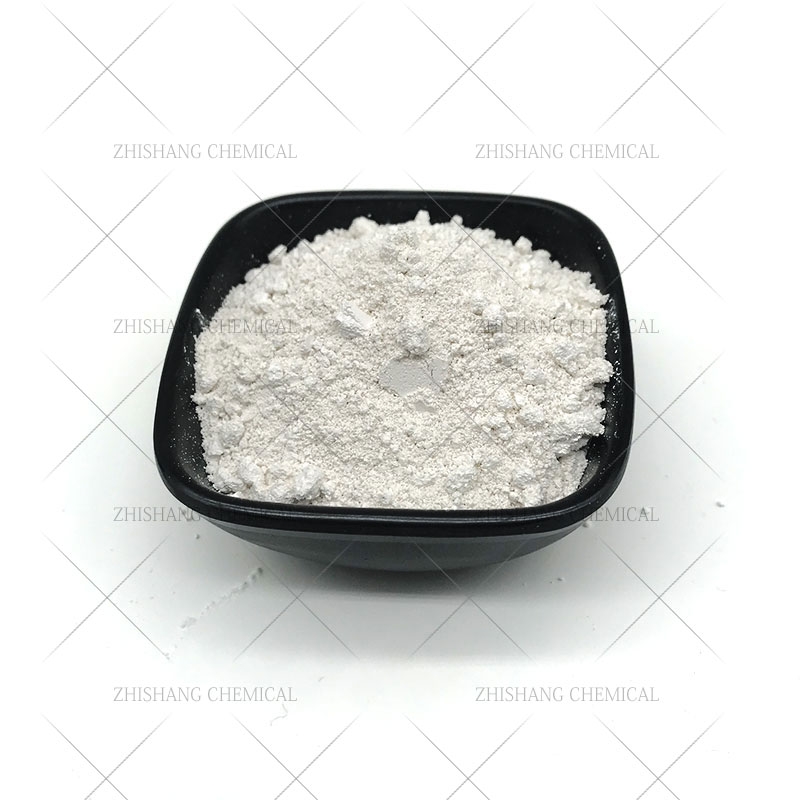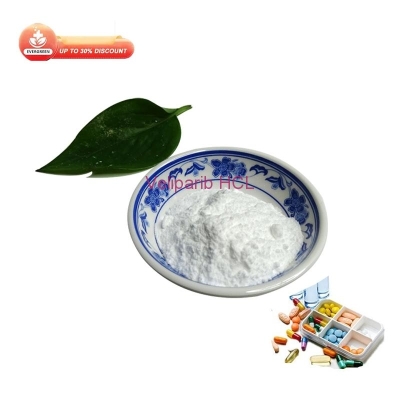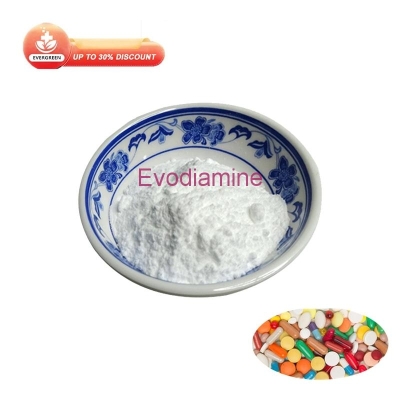-
Categories
-
Pharmaceutical Intermediates
-
Active Pharmaceutical Ingredients
-
Food Additives
- Industrial Coatings
- Agrochemicals
- Dyes and Pigments
- Surfactant
- Flavors and Fragrances
- Chemical Reagents
- Catalyst and Auxiliary
- Natural Products
- Inorganic Chemistry
-
Organic Chemistry
-
Biochemical Engineering
- Analytical Chemistry
- Cosmetic Ingredient
-
Pharmaceutical Intermediates
Promotion
ECHEMI Mall
Wholesale
Weekly Price
Exhibition
News
-
Trade Service
!--webeditor:page title" -- On September 18, 2020, Baiji Shenzhou, at the 2020 Meeting of the European Association of Oncology (ESMO), published for the first time data from its self-developed PARP inhibitor Parmipa in the critical Phase 2 (BGB-290-102 Study Phase 2 study) in patients with advanced ovarian cancer.
data show that Paripali has shown good clinical benefits in both platinum-sensitive and platinum-resistant ovarian cancer patients.
Pamipali is the third independently developed anti-cancer drug in Baiji Shenzhou, and its new drug listing application was accepted and included in the priority review by the National Drug Administration (NMPA) Drug Review Center (CDE) in July 2020, which is expected to usher in a new era of treatment for ovarian cancer patients in China.
High recurrence, platinum resistance, ovarian cancer patients eager for better treatment drugs and programs in China, the annual incidence of ovarian cancer ranks 3rd in female reproductive system tumors, located in cervical cancer and uterine malignant tumors, the trend is increasing year by year, while the mortality rate is the first female reproductive tract malignant tumors, is a serious threat to women's health malignant tumors.
because the ovaries are deep in the pelvic cavity, the early symptoms are not obvious, about two-thirds of the patients diagnosed is late, the current clinical treatment is mainly surgery and postoperative platinum drug chemotherapy.
ovarian cancer is very easy to relapse, after surgery and chemotherapy after the initial treatment, the recurrence rate of patients in 3 years reached about 70%.
the medical community currently divides ovarian cancer recurrence into platinum-sensitive recurrence and platinum-resistant recurrence based on the time after the last platinum-containing chemotherapy.
patients with platinum-sensitive recurrence still have the opportunity to be treated with a platinum-containing chemotherapy program.
However, after multiple relapses, patients will have shorter intervals between each treatment and recurrence, and become less sensitive to platinum drugs, eventually developing platinum-resistant relapses.
patients with relapsed platinum resistance are usually only able to use non-platinum drugs for chemotherapy, the treatment effect is often less than ideal, the progression of the disease will accelerate.
can be said that in the traditional ovarian cancer treatment program, after the end of treatment, the patient entered a passive waiting for relapse, gradually no drug available countdown state.
Pamipali is expected to usher in a new era of Chemo free treatment for ovarian cancer patients In recent years, the advent of poly ADP ribose polymerase (PARP) inhibitors has revolutionized the treatment of ovarian cancer.
PARP inhibitors are representative drugs developed based on the principle of "synthetic lethality".
so-called synthetic death, refers to the phenomenon when two non-lethal mutation genes occur alone will not cause cell death, and at the same time can cause cell death phenomenon.
BRCA1/2 gene is a cancer-suppressing gene in the human body, which plays an important role in DNA damage repair and cell normal growth.
mutation will inhibit the normal repair ability after DNA damage, causing iso-recombination defects, so that double-stranded fractured DNA repair can not be repaired through iso-recombination, and eventually lead to cancer.
PARP plays a key role in dna single-stranded base removal and repair.
THE DNA double-stranded in tumor cells with iso-recombinant defects cannot be repaired, and PARP inhibitors block single-stranded repair, thus creating a "synthetic lethal" effect that leads to tumor cell death.
study showed that Pamipali, a PAPR inhibitor in Baiji Shenzhou, was highly selective to PARP1 and PARP2 enzymes and highly captureable to PARP enzymes.
in-body tests have shown that Parmipali is not the substrate of P-glycoprotein (P-gp) and is expected to overcome drug resistance caused by P-gp over-expression.
P-gp is located on the human cell membrane and pumps the drug out of the tumor cell, causing the concentration of the drug in the cell to decrease and become resistant.
addition, researchers have observed in animal trials that Parmipali has greater blood-brain barrier penetration than similar drugs, potentially benefiting more ovarian cancer patients who are at risk of brain metastasis or brain metastasis.
at present, PARP inhibitors have been approved as maintenance drugs for ovarian cancer, maintenance therapy refers to treatment to achieve complete or partial remission after reducing recurrence of treatment.
is to make the relapse a little slower.
The BGB-290-102 study in Pamipali, Pamipali, Pa., took a step further, focusing on the treatment of ovarian cancer, which is expected to change the treatment patterns of ovarian cancer patients and usher in a new era of treatment for Chemo free ( de-chemotherapy).
The data presented at the ESMO Online Annual Meeting came from a phase 2 dose increase in a Phase 1/2 clinical trial in patients treated with advanced ovarian, fallopian or primary peritonal or advanced tricystic breast cancer, with 113 cases of high-level epithelial ovaries that had received at least two standard chemotherapy sessions and carried BRCA 1/2 mutations. Patients with cancer (including fallopian tube cancer or primary peritina cancer) were included in the key Phase 2 part of the trial in China, including 90 patients with advanced platinum-sensitive ovarian cancer (queue 1) and 23 patients with advanced platinum-resistant ovarian cancer (queue 2), and during the 21-day treatment cycle, patients received 2 oral doses of Paripari at 60 mg each.
the main endpoint of the trial was ORR evaluated by IRC based on version 1.1 of the solid tumor efficacy evaluation standard.
as of February 2, 2020, the results of the medium follow-up time of 12.2 months (0.2, 21.5) showed that the results of platinum-sensitive ovarian cancer patients in Queue 1 The objective mitigation rate (ORR) reached 64.6%, including 8 complete remission (CR) and 45 partial remission (PR), with a medium DoR of 14.5 months and a medium PFS of 15.2 months.
objective remission rate (ORR) was also 31.6% for patients with platinum-resistant ovarian cancer in Queue 2, including 6 PR cases, with a medium DoR of 11.1 months and a medium PFS of 6.2 months.
this means that both platinum-sensitive and platinum-resistant ovarian cancer patients have shown good clinical benefits and that single-drug treatments are safe and easy to manage.
According to public information, the global clinical development of Pamipali as a monotherapy or in combination with other drugs is progressing, and more than 1,200 patients have been admitted to Parmipali's clinical trials in a variety of therapeutic fields, including ovarian cancer, prostate cancer, breast cancer, stomach cancer, and glioblastoma.
we look forward to Parmipali's early approval in China for the benefit of more domestic ovarian cancer patients.
: The purpose of this information is to provide relevant knowledge in the field of disease, improve disease awareness, non-advertising purposes.
the registration of products in China is still in the CDE review stage, and the information covered in this material is for informational purposes only, please follow the advice or guidance of a physician or other medical professional.
/!-- ewebeditor:page--!--ewebeditor:page-title"--reference 1, Ovarian Cancer Clinic (2018 edition) 2, McMeekin et al 20 043, Guide to clinical application of PARP inhibitors for ovarian cancer (China Medical Frontiers Journal (Electronic Edition) No. 12, 2020 No. 5), NCI-AACR-EORTC Presentation, 20155, Mateo J et al., Annals of Oncol, 20196, Xiong Y, et al. Pamiparib is a potent and selective PARP resor with unique potetial for the treatment of brain tumor. Neoplasia. 2020;22: 431–440. n7, ESMO poster 820P, 2020 !-- /ewebeditor: page--







